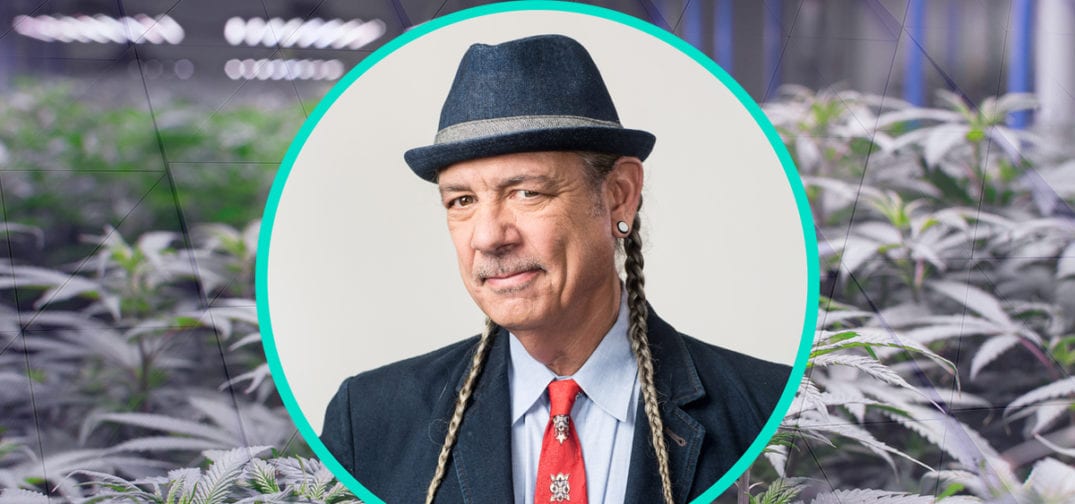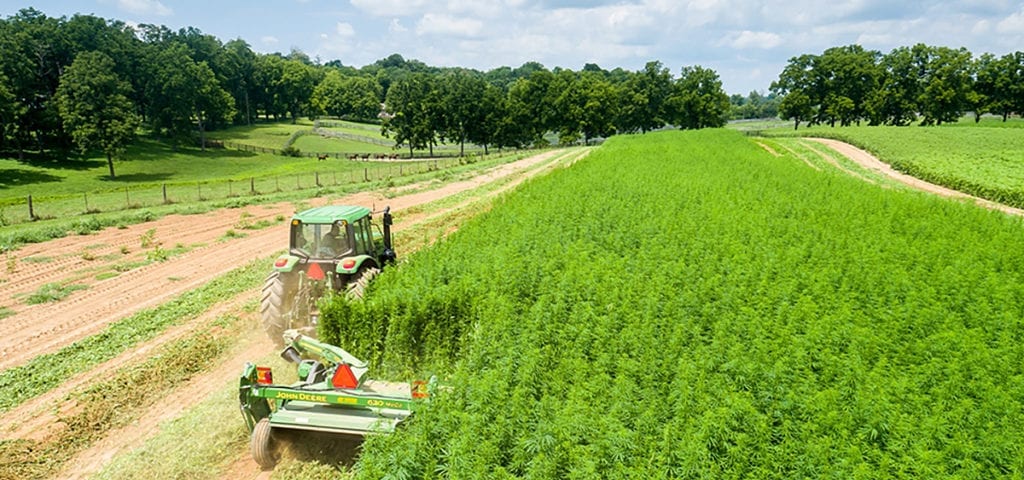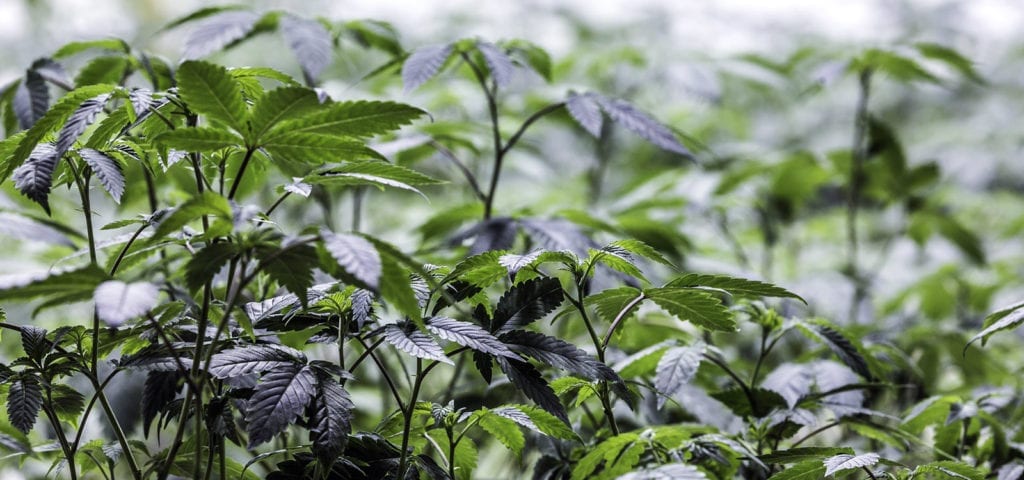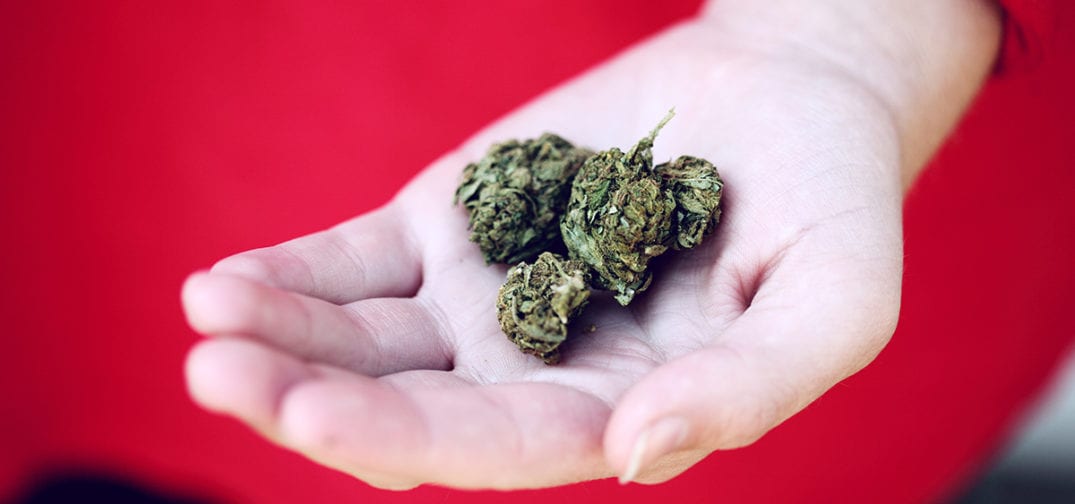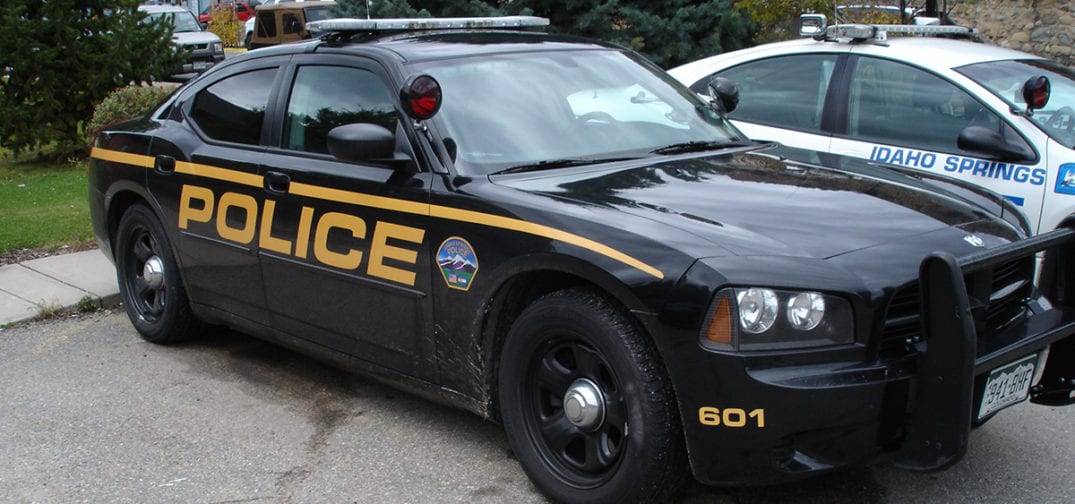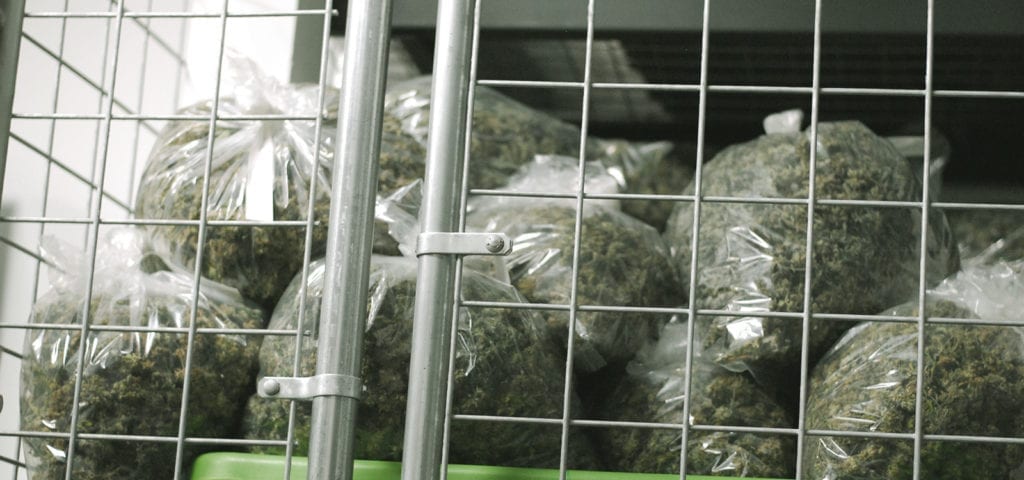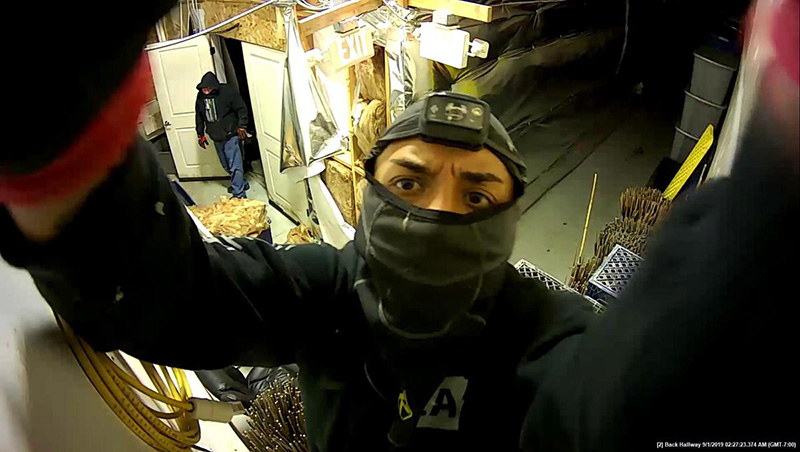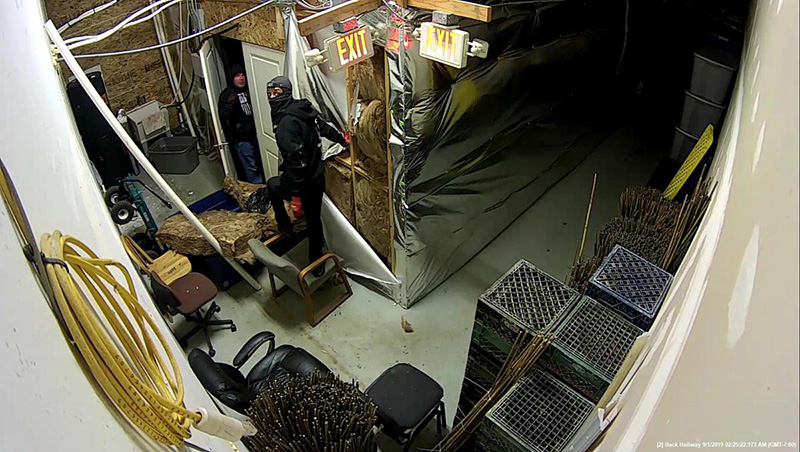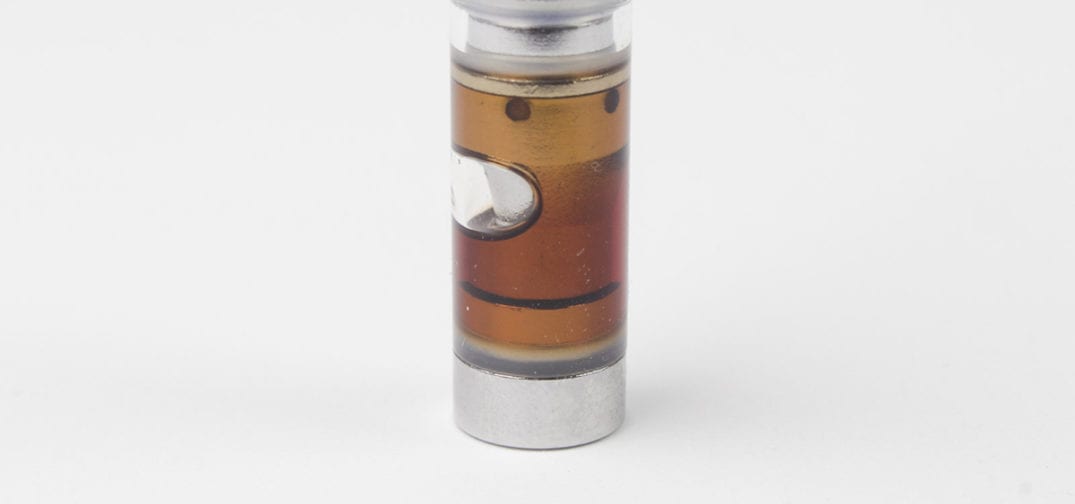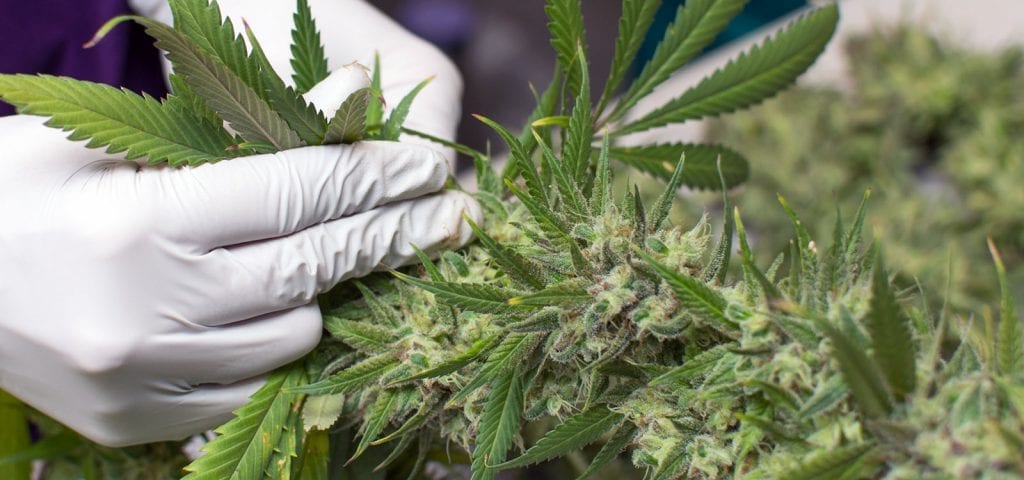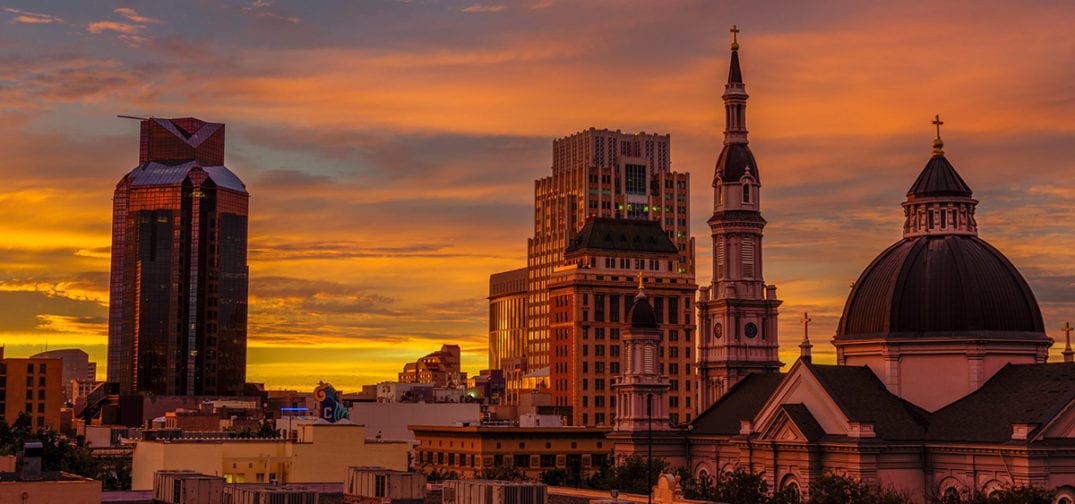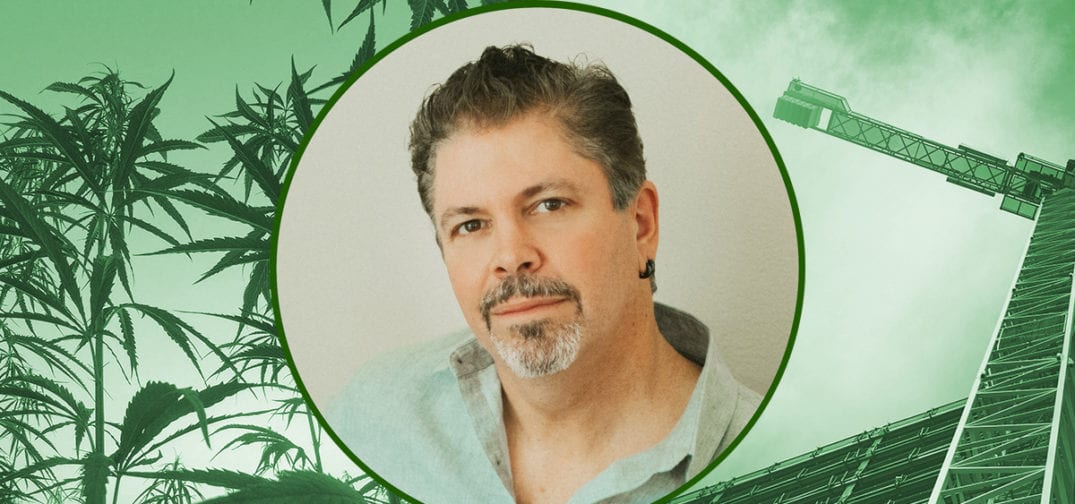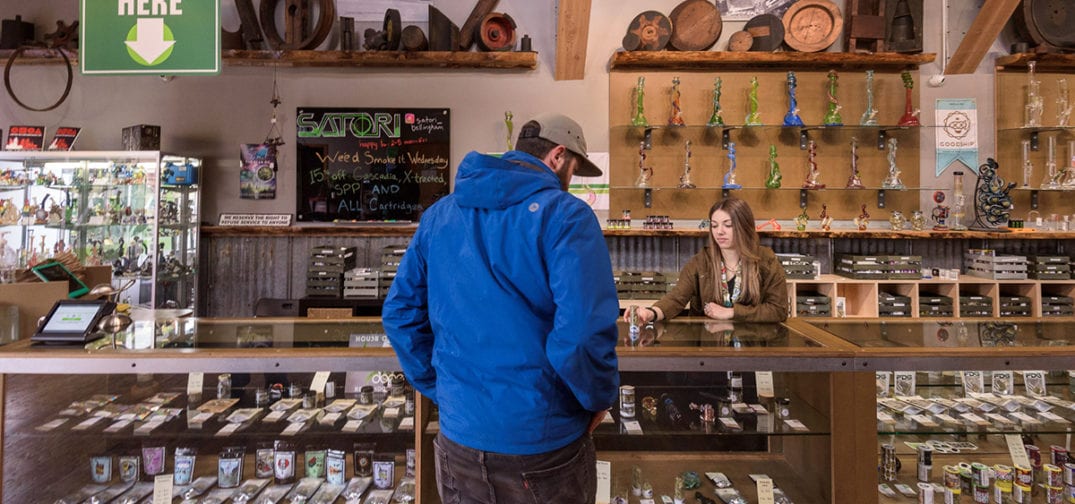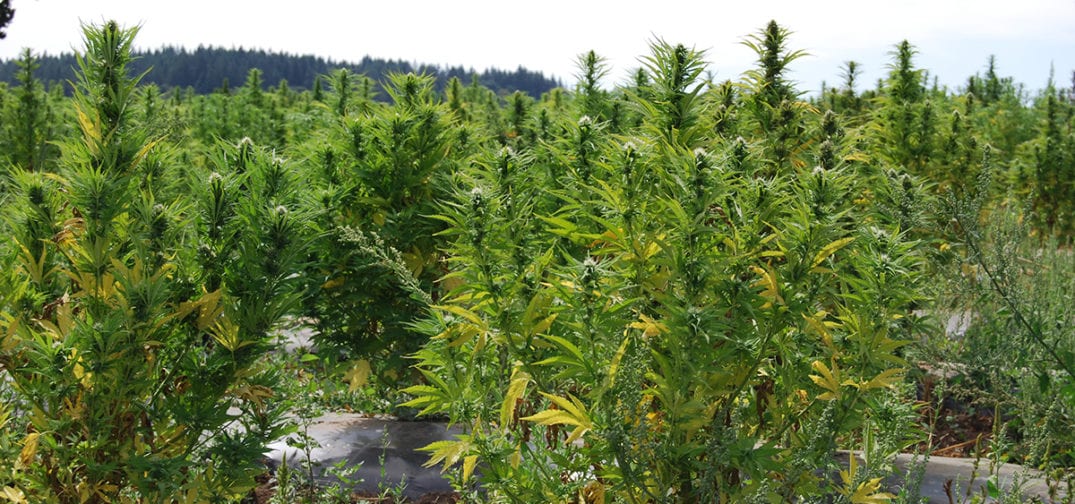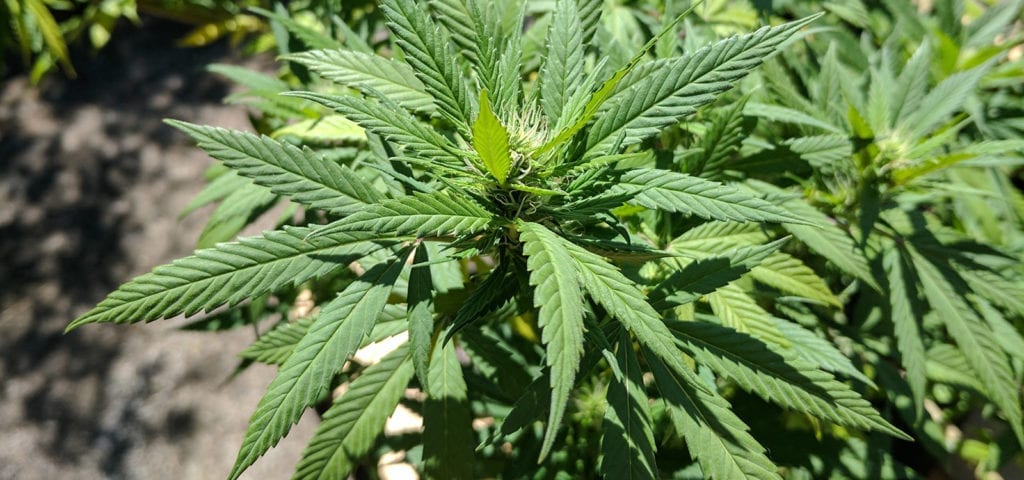Steve DeAngelo — who is is nothing short of a cannabis industry icon, having co-founded Harborside, Steep Hill Labs, Arcview Group, and the NCIA — recently returned to the Ganjapreneur.com Podcast for an interview with our host TG Branfalt.
In this interview, Steve shares the experiences that led to his entry to the cannabis movement and eventually the professional cannabis space. From his earliest advocacy efforts, toking up in front of the White House at the annual 4th of July smoke-in, to the modern industry’s launch following California’s historic medical cannabis legalization, Steve shares the inspiration behind Harborside and explains how the birth of that now-iconic business led also to the founding of Steep Hill Labs (the nation’s first cannabis testing lab), the National Cannabis Industry Association (the industry’s first trade association), and eventually the Arcview Group. He also shares stories of grappling with the reality of doing business in a post-prohibition landscape despite the thousands of individuals still locked away for cannabis crimes, and explains his plan for ending cannabis imprisonment on a global scale.
You can tune in to the interview below or scroll further down to read along with a full transcript of this week’s Ganjapreneur.com podcast episode.
Listen to the podcast:
Read the transcript:
Commercial: This episode of the Ganjapreneur Podcast is made possible by 4:20 friendly service providers in the Ganjapreneur business directory. If you need professional help with your business from accounting, to legal services, to consulting, marketing, payment processing or insurance, visit ganjapreneur.com/businesses to find service providers who specialize in helping cannabis entrepreneurs like you. Visit the Ganjapreneur business directory today at ganjapreneur.com/businesses.
TG Branfalt: Hey, there. I’m your host TG Branfalt and thank you for listening to the Ganjapreneur.com Podcast, where we try to bring you actionable information and normalize cannabis through the stories of ganjapreneurs, activists and industry stakeholders.
Today, I am joined by a man that probably doesn’t need my introduction. He is Steve DeAngelo, often called the ‘Father of the Cannabis Industry.’ He’s the Chairman of Emeritus of Harborside, Inc., a pioneering cannabis entrepreneur, activist, and author. In addition to Harborside, he co-founded several iconic cannabis businesses and organizations, including Steep Hill Laboratory, the first dedicated cannabis lab; the Arcview Group, the first cannabis investment firm; and the National Cannabis Industry Association, the industry’s first trade association.
Thank you so much, Steve, for coming on the show. I can’t wait to get into the weeds, so to speak, with you. We have a lot to talk about. How you doing this afternoon?
Steve DeAngelo: I’m doing very well, Tim. Thanks for having me.
TG Branfalt: As I said, you deserve more introduction than I could give you. But for those out there who don’t know you, give me a little bit of background. How did you end up in the cannabis space?
Steve DeAngelo: Well I was a precocious kid. I encountered cannabis for the first time at age 13 and had a transformational experience with it. Came out of that experience knowing that cannabis was going to be a part of my life forever, and also, knowing that I wasn’t prepared to be a criminal forever. Legalizing cannabis was just a basic prerequisite of my personal happiness at first.
As time went on, and I learned more about how and why cannabis had been made illegal, and the incredible benefits of the plant, then I started getting really, really angry and determined to make this plant legal.
TG Branfalt: You were one, again, you’re often called the ‘Father of the Industry’, and you got your start — ’90s California. Tell me about those early days, man.
Steve DeAngelo: I got my start on the East Coast actually, around the Washington, D.C. area. My earliest days of cannabis activism were putting on the annual Fourth of July smoke-in, in front of the White House.
TG Branfalt: No shit.
Steve DeAngelo: That lasted for about a good decade. I focused on doing that work and then started working on hemp and Hemp Tour.
Those years were basically just being an activist and doing what activists do, traveling around the country, talking to people, organizing demonstrations, disseminating information. But over time, I developed a niche in socially conscious businesses, cannabis businesses that would allow me to make a living, but also spread my message about cannabis.
The first of those was a hemp company called Ecolution, and that company basically lasted from 1990 to 2000, when I moved to California.
TG Branfalt: I want to just step back before we get into the push for medical legalization in California. Can you tell me about who is president when you were the smoke-ins? Can you describe to me the climate in the country as it was towards activism during that period in history?
Steve DeAngelo: Yeah, sure I can. Let me roll it back to 1971 for you. This is the height of the Vietnam War and height of the anti-Vietnam War protests. It’s Fourth of July in Washington, D.C., I am 13 years old, the president is President Richard Nixon, who was a complete enemy of the anti-war movement. On this day, the pro-Nixon forces held a rally called Honor America Day, which was organized by the Reverend Carl McIntire, and all of these right-wing, pro-war folks came and gathered at the Washington Monument.
It was very personal for us in those days. We had the draft then. We had friends, we had brothers who had just been plucked out of our communities, and sent to Vietnam and come back home in body bags. So it was very personal to us when we saw all these right-wingers down at the monument calling for even more people to die.
That was the first Yippie smoke-in. I didn’t help organize it, but I was there. If anybody really wants to see what a wild crazed demonstration looks like, just Google Honor America Day or the first smoke-in. It was a angry time in our country, as angry as it is now. It was confrontational. People on both sides were raised voices and profanity. We even threw a few things around to make our point.
That was the early, early days, and it was where my, I guess my style of activism was forged in that milieu.
TG Branfalt: At that time, we know now that Nixon’s administration had really clamped down on the war on drugs to keep the blacks and the hippies down. That’s what the documents that are now released showed. Was there any indication back then that that was the impetus behind the crackdown by the government?
Steve DeAngelo: Oh we knew exactly that that was the impetus. There was zero doubt in our mind. By that time, we knew enough about cannabis to know that this was not a well intentioned effort of the government to keep us from something that was dangerous. It was very, very clear.
At that time, the federal government under Nixon was really in a state of domestic warfare with the anti-war movement. They were sending FBI agents into anti-war groups trying to convince people to set bombs and they would put informers in. Then if people agreed to do these crazy things that the informers always proposed, then people would be arrested on these conspiracy charges, what we would call terrorism charges today.
There was no doubt in our mind that the campaign against cannabis was intended to hurt us, the hippies, the anti-war forces, black people and brown people.
TG Branfalt: It’s unbelievable. Let’s move ahead to the ’90s and the legalization of medical cannabis in California. Tell me about what was your role in that and the early days of that industry.
Steve DeAngelo: Well I was still living in Washington, D.C. in 1996 when Prop 215 passed. I did travel out here. I did make donations and I did do some volunteer work. But that effort was led by my dear friend, Dennis Peron. I can safely say this now, that Dennis and I were engaged in underground trafficking activities with each other before it was possible to have a license, and so I was tracking what he was doing pretty carefully.
We really have Dennis Peron to thank for the birth of the modern medical cannabis industry and movement. This was the time of the AIDS crisis. The AIDS crisis was hitting San Francisco especially, especially hard. The gay community in San Francisco was having funerals every weekend, instead of having parties. You didn’t know anybody who wasn’t either sick or didn’t have friends that were sick.
Dennis was a weed dealer. He was a gay man, he was a Vietnam vet. This strange thing started happening. Dennis was always very generous with his cannabis and gave it to OAs as much as he would sold it. He noticed that his friends who had AIDS, who were consuming cannabis were living longer and having a higher quality of life than people who didn’t.
As soon as he noticed this, he started spreading the news, and started giving away as much cannabis as he could to AIDS patients and forming alliances with people like Brownie Mary. Brownie Mary was in her 70s when she started this work with Dennis Peron. Dennis would get cannabis for Brownie Mary, Brownie Mary would make it up into brownies, and then she would distribute those brownies to AIDS patients on the ward at San Francisco General Hospital where she was a volunteer. She’d been a volunteer there for years, and years, and years.
This was all taking place in the late ’80s, 1990 and 1991. Dennis was the lead organizer for I believe it was called Proposition 91 in San Francisco. That was the very first … Oh, no. It was Proposition P in San Francisco and it won in 1991. That made San Francisco the first legal jurisdiction for medical cannabis. Then five years after that, Dennis, another good of mine Jack Herer, and a lot of other folks were the prime movers behind Prop 215, which passed in 1996 and made California the first medical cannabis state.
TG Branfalt: What was it set up like? Was there licenses like there is now? What was that early industry … How was it regulated at all?
Steve DeAngelo: Well it basically wasn’t regulated in the early days. Prop 215 called on the legislature to license and regulate the cultivation and distribution of cannabis, but law enforcement agencies, and the League of Cities, and the Association of Rural Counties all got together and put political pressure on the legislature, and prevented them from doing that, because the law enforcement organizations did not want cannabis to be legitimized.
You had this crazy situation where it was legal for people to possess and use cannabis legally at the state level, but there was absolutely no mechanism by which they could get that legal cannabis. The whole intention of the law was being frustrated by the failure of the legislature.
Activists took matters into their own hands. People who had zero interest in being business people, who had never thought about profit, or net profit, or a spreadsheet in their whole lives opened up little stores. They were very raw in the beginning. You’d walk into a store front that had been started by activists who were just frustrated that people couldn’t get medicine, and there would be a couch, there would be a widescreen TV, there would be a little cabinet, there would be a cigar box that was your cash register, and there would be some bags of weed that look very much like the same bags of weed that you would buy at a dealer’s house.
That was the earliest version and that was a problematic version because what happened is the activist dispensaries started doing huge business. Nobody really expected it, but it was the only place that people could legally get cannabis. People who had never run a business before, suddenly they’re seeing millions and millions of dollars coming in through the doors, and all kinds of traffic and volume.
Well all of that volume and money attracted another sort of dispensary operator. These were folks who really liked the gray area. They were people who … Well, their backgrounds say a lot about them. One of the guys who jumped into that space was a guy whose previous gig was selling “organic Kona coffee.” But the coffee was neither organic, nor from Kona. It was poppy we believed. There was another guy whose previous gig was running an underground gambling casino in Anchorage. These were folks who were really not motivated by desire to serve medical cannabis patients, but motivated by a desire to make as much as money as they could, as quickly as they could.
The places they put up were really problematic. You’d go and there’d be a whole bunch of security, barbed wires, bulletproof glass, these great big thuggish gooney guards. There was no real effort to treat people like patients, to educate them about cannabis, to do anything other than get them in and out as quickly as possible, and take as much money from them along the way.
These operations started getting a lot of publicity. They started appearing on news stories. The image of medical cannabis started shifting from one of service, to one of criminality and exploitation. There were some raids up in Northern California around this time where I remember one story where somebody was raided and they had $600,000 in a garbage bag, and had owned several luxury cars, and 200 pairs of sunglasses or something.
It became clear to me that we needed a gold standard of cannabis retailing to show that this was an activity, when done with good intention, could bring benefits to communities, rather than harms. That’s what led to the starting of Harborside.
TG Branfalt: Since then, you’ve founded a lot of several other businesses that are not dispensaries, not retailers. Steep Hill, as I mentioned, laboratories, Arcview for investment. Obviously you realized at that time when the [inaudible 00:16:04] players started to coming into California, that you needed a gold standard. When was it apparent to you that the industry needed these types of businesses and resources?
Steve DeAngelo: What happened is Oakland became the first jurisdiction anywhere in the United States to license medical cannabis retailing. That happened in 2006 because some of the problematic dispensaries that I’ve been talking about opened in Oakland, they were clustered in one area. The city council responded by passing this licensing program and forcing all of the dispensaries in the city to get licenses.
Harborside got one of those licenses. Our intention from the beginning was just to create a really top-flight retail store experience for cannabis consumers, that would be the equivalent of any other top-shelf retail experience. The market really responded to that. I think that by the end of our third year, we were up to $20 million a year in sales, we were serving hundreds and hundreds of patients every day.
With that success, came some attention, some media attention. A few things grew out of it. First was Steep Hill Laboratory. Before I opened Harborside, I had contacted every single commercial analytical laboratory in the Bay Area, and I asked them to test our cannabis because I didn’t want to call it medicine unless I 100% knew that it was safe, and I knew what its potency was, what cannabinoids were in it. But they all refused because of federal law.
I got together with my two co-founders, Addison DeMoura and Dave Lampach. We formed the world’s first dedicated cannabis analytics laboratory, Steep Hill Laboratory. We did that in 2010, which allowed Harborside to become the first dispensary anywhere that sold cannabis that had been tested, that sold CBD rich cannabis. That was an outgrowth. It was just a need that was there.
Then another need became apparent as we got a lot of media attention. I started seeing and hearing from two kinds of people. The first were folks who had successes in the cannabis industry, but wanted to grow and needed some investment capital in order to reach their full potential. The other, and this was mostly through my partner Troy Dayton, who had previously been a fundraiser for Marijuana Policy Project. He was having conversations with people who were very generous donors to the cannabis reform movement, high net worth individuals.
After he started talking to them about donations frequently, the conversation would turn to the new legal industry. Troy was asked, “Where are the deals? How do we understand what’s going on there? Who are the players? How do you assess the risk?” They wanted to put money into the industry, so it was obvious that you have these groups of people and they just really needed a meeting place. They needed to learn each other’s language, they needed to understand each other’s concerns. That’s what led to the starting of the Arcview Group, that was just an effort to introduce cannabis entrepreneurs to cannabis investors.
TG Branfalt: Incredible. It’s incredible to me just how these things are grown out of necessity and then the laboratory is not regulated. You guys are like, “Well we want this,” and you create.
Now you’ve been in the dispensary business, the laboratory business, the investing business. Then you found the NCIA, the National Cannabis Industry Association. Tell me about the mission of the NCIA and what in your opinion the organization does to normalize the cannabis industry.
Steve DeAngelo: It’s interesting when we first started talking about the National Cannabis Industry Association, which I think was also 2010, people would laugh at us. Even friends of mine, I’d go to and say, “Hey, I’m starting the National Cannabis Industry Association,” they’d laugh at me. They’d think that I was joking, that was trying to be humorous because it seemed so improbable to people.
But the folks who started the NCIA, people like myself, like my partner Troy Dayton, like our executive director Aaron Smith, we were amongst the earliest cannabis industry entrance and we all came from a movement background, from a social justice background. We wanted to make sure of two things. First of all, that California wasn’t the first and the last state to have legal cannabis. We wanted to make sure that there was a mechanism to defend against federal attack.
Remember that this time, you had feds coming into California and raiding dispensaries, taking people off to prison. We had people who, in that period of time, were sentenced to sentences so long that they’re still serving them now. There’s a young man who was a young man then, who’s in his middle age now, Luke Scarmazzo, who did much the same thing that I did. He was in, I think Modesto, I was in Oakland, he was sixth months before I did it. He caught, I believe it was a 20 year federal conspiracy charge.
TG Branfalt: What a shame.
Steve DeAngelo: We very much were aware of the need to have a defense mechanism to make sure that this nascent industry wasn’t strangled in its grave. That was part of the impulse I’d say, probably the main impulse behind the found of NCIA.
The second impulse was to make sure that the industry that grew up was an industry that was cognizant of its social justice roots, that did not just become a organization to help people make more money, but that remained an organization that was dedicated to bringing about cannabis freedom and cannabis justice.
TG Branfalt: On the same justice thing, you said in a recent interview that you want every single cannabis prisoner in the world out of prison. You’ve launched the Last Prisoner Project in an effort to do just that. Tell me about this project and how it will work toward that goal of getting every single cannabis prisoner in the world out of prison.
Steve DeAngelo: Yeah, I’d be happy to do that. Thanks for asking. The inspiration for the Last Prisoner Project really came from a personal experience that I had after California had voted to legalize cannabis, but before it was completely 100% the law had been implemented. During this period, I like a lot of cannabis entrepreneurs and business people in California, was meeting with investment bankers, was meeting with people who can help you get onto the stock exchanges, can help you raise capital because we were gearing up for this new adult-use market.
I was in one of these meetings, in a really big fancy skyscraper, huge conference table, amazing view. I’d been talking to a lot of folks who were really, really excited. We were looking at numbers, we were adding them up, it was looking really good. There was excitement in the room because everybody knew that we were going to be making money doing this and making significant amounts of money doing this.
Towards the end of the meeting, right at the end of the meeting actually, I get a phone call and it’s my friend Chuck. Chuck has been imprisoned in the state of Pennsylvania for four years, for 14 pounds of cannabis. We, in that conference room had been talking about magnitudes more. We had been talking about tons and tons of cannabis.
TG Branfalt: Literal tons.
Steve DeAngelo: None of us had to worry about going to prison.
I excused myself, I took the call, I talked to Chuck. He’s a tough guy, so he wasn’t whining or anything, but I could tell that he was miserable, he was lonely, he was really upset because his elderly mother didn’t have anyone to shovel the snow from her walk.
I hung up the phone and it just struck me. I was like, “God, we’re sitting here talking about creating intergenerational wealth, millions, and millions, and millions of dollars, creating a whole new industry that’s going to be on stock exchanges, and my friend Chuck and thousands of people like him are sitting there in cells.” Imagine, how would you feel if you were sitting in a cell, looking out your windows or watching TV, and seeing this huge new legal industry, and all these people talking excitedly about all the investments, and the conferences, and the money, and you’re sitting there in that cell for doing exactly the same thing.
I know how I would feel and I don’t want anyone to feel that way. That was the genesis for the Last Prisoner project.
TG Branfalt: What are you doing over there with the Last Prisoner Project? What are you guys working towards, I guess?
Steve DeAngelo: Well the first thing that we’re doing is really just assessing the problem. It turns out that it’s not easy to determine how many people are locked up in the United States on cannabis charges. Lots of jurisdictions don’t even really track charges by particular drugs. Lots of times people end up with the crime of violating probation or violating parole, but the underlying cause of that violation is a bad cannabis urine test. It can be difficult to assess, and the first thing that we’re doing is really just trying to figure out where all of our people are and what situations that they’re in, an assessment, and figuring out what it’s going to take to free them.
Where we’re headed is towards a formal launch in September. It will be a really exciting launch. I’ll you know about it as it happens.
TG Branfalt: Please do.
Steve DeAngelo: I can’t talk too much about it right now, but the centerpiece of our program in the earliest days is going to be clemency petitions. Right now, there are a number of states that have passed cannabis laws and some of those laws have provisions for clemency in them, some of them do not. But in all cases, the governor of a state has the power to give clemency to any prisoner, to let them out of prison immediately. Governors in some of the new reformed states, like Michigan and Illinois, have indicated in public statements that they’re willing to do this.
The problem is that the technical effort of actually filing out these thousands and thousands of clemency petitions, submitting them, reviewing them, getting them cleared and actually releasing prisoners is a huge task. That task usually just goes through the governor’s office. It doesn’t have a huge staff.
What we’re going to be doing is working with governor’s offices around the country to help develop streamlined clemency procedures, and then we are recruiting and training a small army of lawyers who will work with all of the prisoners to file their individual clemency petitions. We think this is the fastest way to get the most people out for the least amount of money, so we want to do that as quickly as we can.
But moving on, there will be cannabis prisoners who don’t qualify for clemency. I’ll give you one example. One of the prisoners that we’re in touch with is facing a 42 to 60-year sentence, a de facto life sentence. It was his third cannabis sale, but he lived on a farm. If it was just the cannabis sale, he would have gone to prison for a long time, but not that long. But because they were guns in another part of the farm that were unrelated to the sale, but were on the legal property, he was given gun charges as well. This person who had never committed a violent crime, nobody was ever hurt, he wasn’t carrying guns, is now looking at a 42 to 60-year sentence.
In these kinds of cases, we are going to have to move towards petitions for resentencing, and petitions for retrial in some cases. They will be more expensive, they will take longer, but we’re not going to stop until we get the last one out.
TG Branfalt: I really can’t wait to see some of the headlines that pop up as a result of this project. Thanks for filling me in a little bit before the launch.
Talking about the money that can be made in the industry, and a lot of states, townships, cities have launched social equity programs whereby some licenses are given to people usually most affected by the war on drugs. In your opinion, do these programs do enough to provide those so-called reparations?
Steve DeAngelo: Well I think they’re a start, but they’re not sufficient in themselves. What’s really important to remember in this whole conversation is that the racial disparity in cannabis enforcement was not just some unintended consequence that just happened. The original animating purpose of cannabis prohibition in the United States was to control black and brown communities. That is why the laws were passed in the first place, that was their intention, and the disparity was planned from the beginning.
If we do not do something to make sure that this is a diverse industry, that people of color have an opportunity, a real opportunity to participate in, then we are piling injustice on top of injustice. But we have this amazing opportunity to fix it.
I think that that operates at several levels. Yes, we need some preferential licensing provisions to make sure that we get folks from communities of color licensed in the first place, but getting a license is just the beginning of it. After you get a license you have to get a location, you have to recruit a team, you have to write a plan, you have to raise money, you have to set up all of your compliance, all of your security, all of your bookkeeping. That’s a big task for somebody that hasn’t had an opportunity to participate in a business before. It takes a lot of money to do it.
What we’re finding in too many cases is that people from communities of color who have received licenses are unable to actually put those licenses into effect and create businesses. In cases where they have been able to do that frequently, they are unable to keep the business open or sometimes, and in other cases, just not able to grow it to its full potential.
I think that we really need a network of support around people who have been awarded equity licenses and I think that takes a number of different forms. I think there needs to be training, and you have some private companies who are stepping into that gap now, and acting as brokers between investors and equity licensees. That’s one way of tackling that.
I would really like to see a world class training center for cannabis equity licensees. Some place that would be in a beautiful prestigious location where equity licensees from all over the country could come and get the very best, I’m talking like Harvard level cannabis training, both workers who are in the workforce and entrepreneurs.
Then I’d like to see a dedicated showcase mall attached to that university, to that training center where the graduates of those programs would be able to move right into locations that would be licensed, so that they have an opportunity to really take the skills that they learned, and take the license and execute on it, and make it something that happens. That’s not something that can happen by the government by itself, but I think that could happen.
I’d like to see a fund. I think that the cannabis investors should get together and put together a fund with the understanding that the money that came out of this fund would be supplied to entrepreneurs from communities of color, and would be supplied at a very advantageous rate that would give them a little bit of competitive edge in the marketplace.
I think that there’s things that can and should be done to supplement the licensing regulations. The licensing regulations are just a starting point that give us the ability to start building, but we have a lot of building to do after that.
TG Branfalt: It’s a very, very interesting idea that you have. There are, to be fair, quite a few angel investors in this space that I’ve actually had on the show that do what you outlined there, where they do offer these social equity applicants better rates and training programs for the space.
I want to switch gears a little bit while we still have some time and talk to you briefly about going public on the CSE, the Canadian Securities Exchange. How important is such a move as the industry gets more competitive? You’ve told us from the ’70s to now, you go from a little shop in Oakland to now being publicly traded. Tell me about your opinion too on the evolution of the industry?
Steve DeAngelo: The evolution of the industry has been massively accelerated by the opening of the Canadian public stock exchanges to cannabis companies. What you’ve seen, certainly in California and really around the country, is companies that have raised hundreds of millions of dollars on the Canadian stock exchanges are now coming into the United States and either acquiring U.S. cannabis companies, or merging with U.S. cannabis companies, or forming some type of strategic alliance with cannabis companies.
If you really want to be in the top tiers of cannabis companies in the United States, you almost must have some type of public market strategy in order to continue growing at the pace that your competitors are growing.
TG Branfalt: Is it a little bit crazy to you going from where you started, with the gray market, to launching that same company on a national exchange?
Steve DeAngelo: It’s incredibly validating. Harborside, it was just a little over three years ago, no excuse me, just a little under three years ago that the federal government of the United States finally rested the civil forfeiture cases that they were prosecuting against us trying to seize all of the locations, the real estate that we operated in and close us down.
Now to have successfully resisted the federal government’s effort to close us and close the whole industry, to have gone through the 2018 regulations in California, which were intense, and successfully enter the Canadian Securities Exchange through one of the most demanding, due diligence processes that exists on planet Earth, that’s exhilarating and validating for me.
TG Branfalt: I remember when I was younger, my friends I would talk about legalization. We were like, “We won’t see it in our lifetime.” Here we are. I’m in New York, so it’s still not legal, but I am seeing legalization in my lifetime. Can you speak to that as somebody who’s been an activist for as long as you have and seeing as much as you have?
Steve DeAngelo: Yeah. I get this question all the time and my basic answer is I always knew that this plant would be legal. I thought that we would actually get it done in a much shorter period of time that has taken us.
There was a period of time in the 1970s when we had about 15 states that decriminalized cannabis. In 1978, President Jimmy Carter endorsed the nationwide decriminalization of cannabis. But then Ronald Reagan was elected and he rejuvenated Nixon’s whole war on drugs thing, and a lot of the decriminalization states recriminalized cannabis. That’s taken us all of these years since then to claw our way back to the point that we are now.
I don’t think I answered your question though, Tim. Do you want to … ?
TG Branfalt: You did answer my question. In the last minute here, so what advice would you have for entrepreneurs looking to enter the cannabis space?
Steve DeAngelo: My advice to entrepreneurs who want to enter the cannabis space is to take a look at whatever it is that you already know how to do. Chances are, you’ll be able to take that skillset and apply it in the world of cannabis. The reality is that cannabis has been illegal, and cut off from most modern business technology, or practices or ideas ever since the beginning of modern business.
Whether you’re a software engineer, or you’re a compliance specialist, or you’re a marketing person, or you’re in HR, the cannabis industry is going to need all of these skillsets and all sorts of ideas. Use the knowledge that you have, take a look at the world of cannabis, and you will probably see gaps, you will probably see places where you’ll say, “Gee, I know how we can fix that problem.” That of course is, in my mind, the essence of all successful entrepreneurship is spotting a problem and figuring out a solution to it.
TG Branfalt: Steve DeAngelo, this has been absolutely fascinating. I could sit here literally and talk to you for another three hours. Where can people find out more about you, your story and what you have going on?
Steve DeAngelo: Sure. You can go to my website, stevedeangelo.com. That’s probably the best way to get me. You can also track me on IG, it’s @stevedeangelo. I will be speaking widely. You can go into Green Flower Media. I have a little show on Green Flower Media that’s called Ask Steve. My brother and I are working on a podcast, which we expect to launch sometime in the next coming weeks.
TG Branfalt: That is all very super exciting stuff. I’m going to send you so many questions on Ask Steve. Steve DeAngelo, he’s an OG, he’s the ‘Father of the Cannabis Industry’, he’s the Chairman of Emeritus of Harborside, he’s the co-founder of Steep Hill, he’s basically done it all. I really, really appreciate you taking the time to be on the show, Steve.
Steve DeAngelo: Thanks so much for having me, Tim.
TG Branfalt: You can find more episodes of the Ganjapreneur.com podcast in the podcast section of Ganjapreneur.com, and in the Apple iTunes store. On the Ganjapreneur.com website, you will find the latest cannabis news and cannabis jobs, updated daily, along with transcripts of this podcast. You can also download the Ganjapreneur.com app in iTunes and Google Play.
This episode was engineered by Trim Media House, and this outro was botched by TG Branfalt.
End
